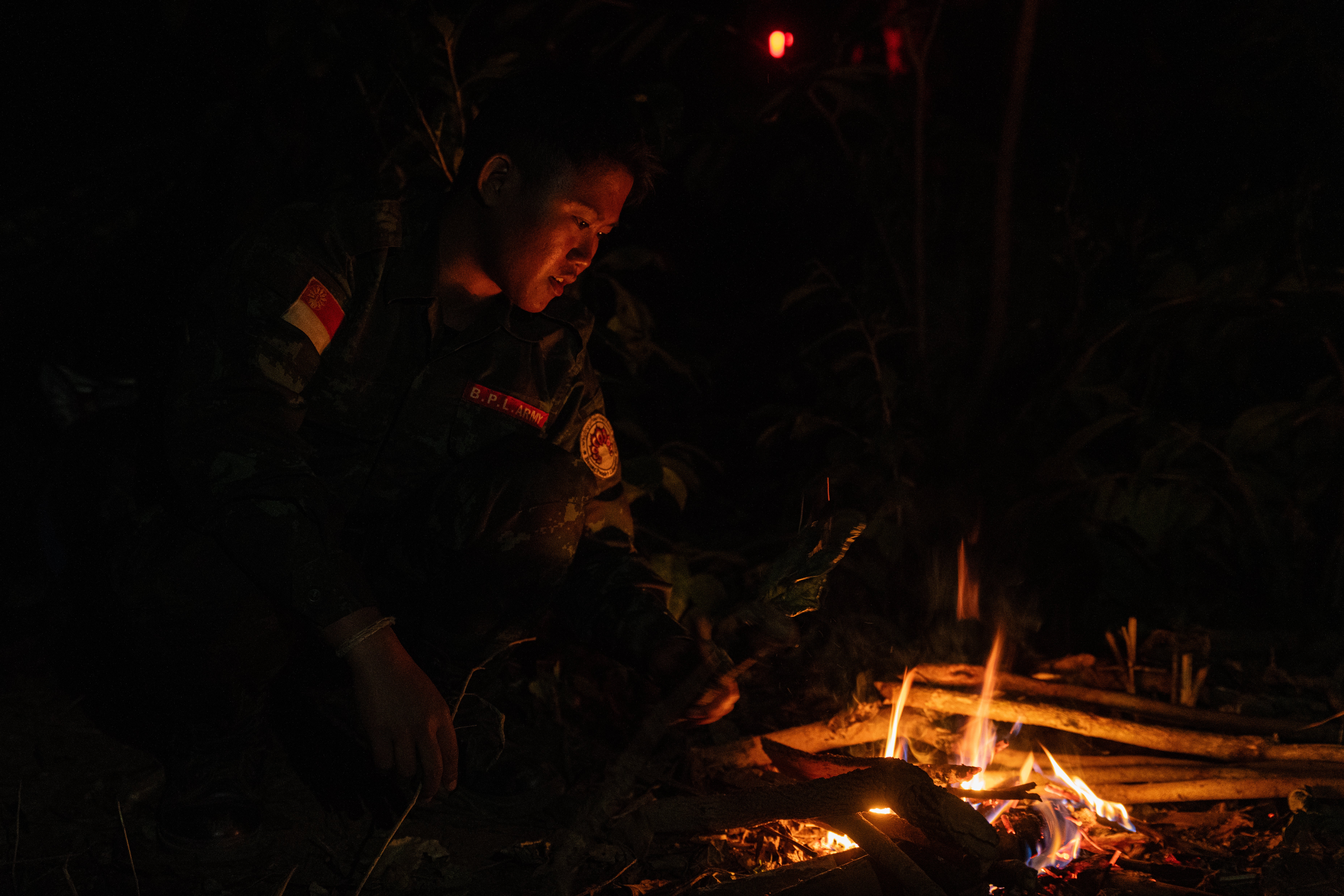The Independent's journalism is supported by our readers. When you purchase through links on our site, we may earn commission.
Poets on the frontline are the unlikely warriors of Myanmar
Throughout Myanmar’s turbulent past, its poets have weaponised words in the struggle against oppressive regimes. Joe Freeman and Aung Naing Soe have collected the work of a new generation of literary freedom fighters in a new book offering a unique perspective on the country’s troubled present…

After the 7.7-magnitude earthquake that struck central Myanmar on 28 March and left a litany of death and destruction in its wake, a photo of young men delivering aid appeared on Facebook.
Given this is a country with no reliable national emergency management system, ruled by a junta that, despite appeals for international aid, was doing very little on the ground, this was not out of the ordinary. What was unusual was that the volunteer relief workers were poets.
Myanmar, also known as Burma, is no stranger to crisis. The independence struggle against the British was followed by Japan’s invasion at the start of fierce fighting during the Second World War. After independence was won in 1948, there were endless rounds of armed conflict and tensions between Myanmar’s military, which is dominated by the main ethnic group, the Bamar, and ethnic minorities based in the borderlands. There were military regimes which cut the country off from the world. Then, after a brief, decade-long respite of democratic rule, the military seized power again on 1 February 2021, installing a junta that has to date killed more than 6,000 civilians and imprisoned more than 20,000 people.
Throughout Myanmar’s turbulent history, one constant has been the active role of poets in its social, economic and political upheavals. While it is debatable when the fuse of poetry and politics was lit for the first time, a good place to start is with Thakin Kodaw Hmaing, the early 20th-century poet, satirist and writer who, in the words of the contemporary Myanmar poet San Nyein Oo, was the first revolutionary poet: “He used poetry and literature as a weapon for the revolution.”

That practice has continued to the present day, with poets like Maung Saungkha, a former peace and human rights activist who now leads an armed resistance faction against the junta in the jungles of southeastern Myanmar. It continues further with Yoe Aunt Min, a younger environmental activist who has written startlingly candid poetry about going from being someone who never thought she’d hold a gun to becoming a top commander in Saungkha’s army.
We try to tell these stories and more in our new book, Frontline Poets: The Literary Rebels Taking on Myanmar’s Military, in which we chronicle the lives, experiences, and of course the poetry of five poets whose lives were upended by the 2021 coup in Myanmar. However, readers may be surprised that the book contains more hope and empowerment than doom and resignation.
That’s why poetry still matters in Myanmar. In a country where it is easy – and understandable – to lose hope, poetry can offer a bulwark against despair. It can move people to action, to stand up for what’s right, and to channel their pain into power.
But it can also comfort them in moments of anguish or dramatic change, a theme that Yoe Aunt Min explores in a lengthy poem about her life as a soldier and the attendant difficulties she experienced. Here is a short excerpt, which gives a flavour of the incredible poetry being produced in Myanmar at the moment, some of it written from the very front lines of an existential fight for the country’s soul:
I have abandoned everything after I had abandoned everything.
I will have to equip myself while running, while getting soaked and tired.
Don’t foresee tomorrow
Don’t overlook above
I will get rid of my thirst as I drink the raindrops on my cheek
What about you?
Joe Freeman and Aung Naing Soe are the authors of Frontline Poets: The Literary Rebels Taking on Myanmar’s Military
Join our commenting forum
Join thought-provoking conversations, follow other Independent readers and see their replies
Comments